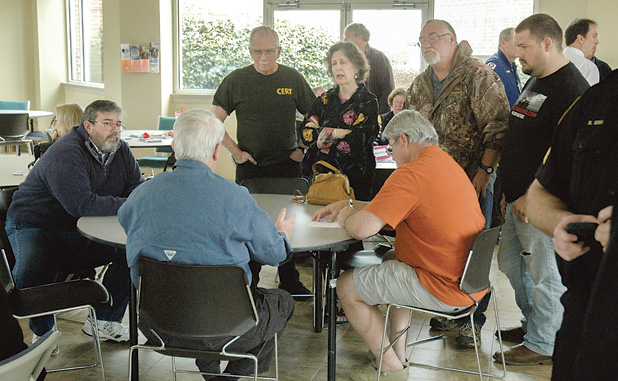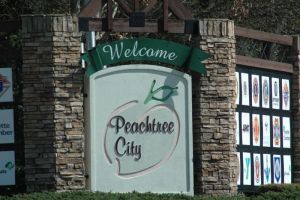When a tornado or other community disaster strikes, a large part of the response comes from friends, neighbors and members of the faith-based community. Gearing up for a response was the intent behind the Coweta-Fayette Faith-based diaster Conference held Feb. 20 at Cornerstone United Methodist Church.
It was several years ago that faith-based conferences were held in Fayette County. On Feb. 20, more than 100 church representatives from Fayette and Coweta counties met at Cornerstone United Methodist Church to learn more about responding when a disaster strikes.
Attendees heard from Voluntary Organizations Active in Disaster (VOAD) Georgia President Mike Yoder, Chattahoochee Valley Community VOAD President Jonnell Minefee, Coweta-Fayette EMC representative Dustin McNeely and Church of Jesus Christ of Latter-day Saints representative Mike Stacey.
Leading the conference were Fayette County EMA Director Mike Singleton and Coweta County EMA Director Jay Jones.
A portion of the meeting included breakout sessions where attendees met in small groups to discuss a variety of issues that arise during any community emergency.
Among the topics discussed were volunteer management, debris clean-up, shelter management, communications, donated goods and damage assessment.
The reality is that it is never a question of whether some type of local disaster will occur. The question is when it will happen. Beyond that comes the response. And much of the response in any community comes from individuals, organizations and groups geared to help out in a time of need.
There is plenty local public safety personnel can do during a community emergency, though those efforts are limited. After that, it is the help from volunteers that can make a world of difference to survivors.
Such was the case in June 2015 when a microbrust with winds of 80-90 miles per hour ripped through the tree-filled Whispering Pines Mobile Home Park in Tyrone. Eleven homes were destroyed and another 14 were damaged when 20-30 large pine trees came crashing down and, in some cases, impaled the homes.
A large part of the work to clean up what could easily be mistaken for a war zone came faith-based groups after emergency officials put out the word.













Leave a Comment
You must be logged in to post a comment.